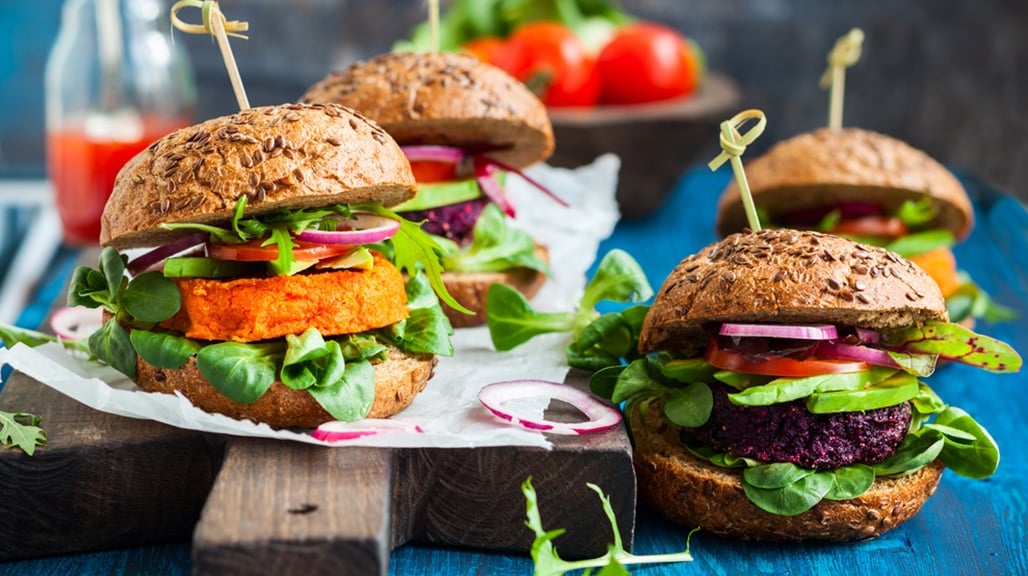Vegetarianism and Veganism: What’s The Difference?
 Contributed by
Pauliina Salmenhaara
October 30, 2016
Contributed by
Pauliina Salmenhaara
October 30, 2016

Originating for the first time on a larger scale in the Indus Valley Civilization, vegetarianism is generally defined as abstaining from consuming any flesh that comes from an animal – such as seafood, poultry, and red meat – due to personal beliefs, religion, or other preferences.
That being said, there are many types of vegetarianism, each with their own kind of restrictions. To clear up some of the confusion, let’s look deeper into what vegetarianism really is and what motivates people to do it. We have placed these from least to most restrictive.
Vegetarian Categories
Flexitarian – Putting in one’s best effort to be fully plant-based, but having the occasional animal or animal-derived product.
Pescatarian – A type of flexitarian or semi-vegetarian, a pescatarian will consume fish and seafood.
Pollotarian – Another type of semi-vegetarian, one who eats poultry and fowl.
Lacto-Ovo Vegetarian – The most common type of vegetarian. No red meat, white meat, fish, or fowl. They do consume dairy and eggs.
Ovo-Vegetarian – Has eliminated all animal products apart from eggs.
Lacto-Vegetarian – Does consume dairy products such as cheese, milk, and yogurt.
Vegan – Does not eat any animal products or by-products at all, taking it a step further to not using honey, beeswax, gelatin. This often extends into their wider lifestyle, even avoiding silk, leather, and wool, and choosing make-up and body products that have no animal by-products or cruelty.
Vegan Categories:
“Vegetarianism is usually a diet, while veganism is a lifestyle.”
Just as there are many forms of vegetarianism, with veganism as the most committed, there isn’t just one form of veganism either.
Ethical – Ethical vegans have chosen this way of life because of a greater purpose – an advocacy of respecting every life form here on earth as being equally valuable. Some vegans also extend this philosophy by avoiding non-food animal products such as beeswax, leather, silk, wool, or any household or beauty items that require any form of animal exploitation.
Religious – Religion is one of the main reasons why people become vegetarian or vegan: Hinduism, Jainism, Islam, Judaism, Rastafari, Mahayana Buddhism strongly prohibit the consumption of meat.
Plant -Based – The plant-based philosophy generally is based around being health-conscious and choosing food which are not only plant based but life-enhancing, as little processed as possible, with little or no use of unhealthy cooking methods such as deep-frying.
Raw Vegan – Raw veganism takes veganism to the level of not eating food that is heated above 115 degrees Fahrenheit (47 degrees celsius), in the belief that this preserves the enzymes and nutrients, thus providing maximum health benefits. Raw vegans will usually stay away from other processed foods such as bread and refined sugar.
Junkfood Vegan – Just because someone is vegan, doesn’t mean they are interested in food or their health. A junkfood vegans’ primary concern is animal welfare, and they themselves may eat the unhealthiest, most processed fast foods.
Fruitarianism – A diet primarily consisting of fruits. Some fruitarians only eat what falls naturally from a plant or a tree, believing the principle that eating naturally fallen fruit means that it is harvested without killing or harming the plant. Some extreme individuals who practice fruitarianism avoid eating grains and seeds as well, as they believe that eating the seeds is a form of destroying a future plant.
Environmental Vegan – A type of vegan who is concerned with how food is produced, particularly with farming methods. With the heavy pollution and pain cycles of regular farming, these vegans only eat foods that are produced in sustainable, ethical ways.
High-Carb Low-Fat (HCLF) – A diet wherein the main source of carbs are from fruits. It is also known as the 80/10/10 diet, 80% of calories coming from the carbohydrates of fruit, 10% from fats, and 10% from protein.
The Doesn’t-Get-It Vegan – Because most of these individuals are new to the movement, they are often unaware or have a limited knowledge of what a vegan diet consists of.
The Jacked Vegan – Who says vegan diet cannot make you strong and can only make you weak? The jacked vegan proves otherwise. These individuals choose a vegan diet to fuel their stamina.
The Cheating Vegan – Also known as Cheagan, these are people who are struggling to avoid eating meat, dairy products, and desserts at all. As a result, they eat the prohibited foods in secret to satisfy their cravings.
The Vegan Police – Also known as the experienced vegan, the vegan police know the vegan diet very well. Make no mistake, they will correct you or educate you on what is – and what is not – vegan.
We at R.A.W. Inside Out believe in doing the best you can without being too hard on yourself, and taking it step by step. If your intentions are for the higher good, then do also be kind to yourself in those moments when you slip. Our founder Pauliina herself has the occasional smoked salmon, makes an exception for eggs if her daughter has made an effort to make her a gluten-free cake, and uses honey for healing purposes. We try to educate, not judge. In fact, Pauliina lives with four meat-eaters, and believes that each one of her family members has their own journey of discovery.
Written by Germina Paola, for R.A.W. Inside Out.
Edited by Michelle Sarthou
Images: Shutterstock
References:
http://hubpages.com/food/A-Introduction-to-Vegetarianism-and-Vaganism
http://www.vegetarian-nation.com/resources/common-questions/types-levels-vegetarian/
https://www.buzzfeed.com/peta/are-you-a-vegan-stereotype-2m5m?utm_term=.xeBQYeJq2#.tsgym7e1k
Did you enjoy this post? Please comment, like and share!











Sorry, the comment form is closed at this time.